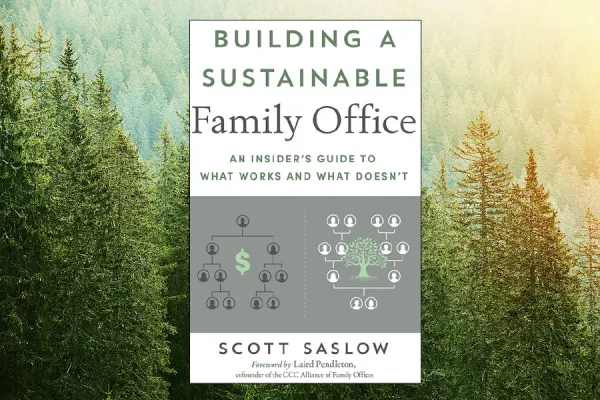As the mayor of San Jose, California, Charles Rufus (Chuck) Reed made pension reform a signature issue. In 2012 Reed championed a successful ballot initiative that would significantly change the public pension system in the California city. The changes were immediately challenged in court by union critics, and a judge overturned some of its key provisions. Now with Reed unable to serve a third term, the future of his reforms, touted as a model for other California municipalities to follow, is uncertain.
Two candidates are facing off in the November 4 mayoral election. City Councilman Sam Liccardo has promised to uphold Reed’s reforms, whereas Santa Clara County Supervisor David Cortese has promised to roll back reforms, which he and his supporters say have caused a health and safety crisis in San Jose.
Reed has endorsed Liccardo. Most of the major unions, including the city police and firefighters, are backing Cortese. More unusual is the fact that all three — Cortese, Liccardo and Reed — are Democrats. The election is a runoff.
In this, the first of three articles looking at public pensions in 2014 elections, Institutional Investor examines what’s at stake in San Jose, a city of around 1 million people on the eastern edge of Silicon Valley. Although San Jose has always been the blue-collar city in Silicon Valley, it nevertheless boasts a median household income of $91,533, making it one of the wealthiest cities per capita in the U.S. But for more than a decade, it has suffered from significant budget deficits. Its fiscal 2013–’14 budget shortfall was $700 million on a $2.9 billion operating budget,and there have been cuts to basic city services. Some 13.9 percent of the population makes less than $25,000 a year, whereas 45.4 percent earns $100,000 or more.
The San Jose mayoral race is tight, but Cortese seems to have a slight edge. Some 34 percent of respondents in an October 12–16 poll from San Jose State University said they would vote for Cortese, and 26 percent opted for Liccardo, though some 35 percent remain undecided. Among respondents, 26 percent said that increasing funding for fire and police — Cortese’s core issue — was important to them; the same percent answered that maintaining efforts to reduce city employee pension costs was their most important issue. However, a larger percentage of respondents, 52 percent, thought public safety was “important, but not the most important issue.”
Two factors make the San Jose race particularly complex. The first is the nature of Reed’s pension reform program and where it stands today. The second concerns public safety issues, which have been exacerbated by the pension battle. Hovering in the background is Reed’s political legacy, the future of pension reform in California and the fiscal health of San Jose.
After a city council vote, Reed’s pension reform effort was put to San Jose voters on June 5, 2012. The ballot question, known as Measure B, gave current city workers the option of switching to a smaller pension or staying in the remaining plan but paying more to pay off existing pension debt. It also included the ability to impose a five-year freeze on pension increases and would switch new hires into a hybrid plan that would include Social Security, a defined benefit or a defined contribution plan.
Measure B was passed, with nearly 70 percent of the votes. Litigation followed, and the Santa Clara County Superior Court overturned key provisions of the proposal, such as the city’s ability to change vested pension benefits or previously agreed-upon beneficiary contributions. In addition, the court tentatively ruled that San Jose must pay for its own legal defense. Those challenges cut into the estimated cost savings of the pension reforms.
At the same time, stories surfaced that San Jose was struggling to retain police recruits owing to less-competitive salaries and benefits. As of October 2013, San Jose had 1,000 police, down from 1,400 in 2008. In 2013 alone the force witnessed more than 80 departures. By March 2014 the number of street-ready police had fallen to 906, with officers saying that rookie cops were seeking jobs elsewhere. Firefighters too reported staffing-level problems.
Cops and firefighters blame the problem in their ranks on pay and budget cuts, including pension reforms. Others, however, have accused workers of exaggerating the problem to garner sympathy.
On October 17 an attorney and former San Jose police cadet, Elyse Rivas, published an op-ed column in the San Jose Mercury News in which she described a demoralized police force and referred to a briefing given by Police Officers Association president Jim Unland. “In no uncertain terms, he blamed Measure B for the departure of hundreds of officers,” Rivas wrote, alleging that Unland “told us that it would be better for the department and for us if we would just quit, right then and there.”
Unland strongly denies the allegation. And Rivas later said she was uncertain the union president had used the word “quit.” But Unland did tell the Mercury News, “If you are accusing me of educating incoming recruits about benefits, I’m guilty as charged. But I was accused of telling them to quit right then and there, and that’s a lie.” In a statement on the web site Protect San Jose, an effort of the Police Officers Association and “community leaders,” Unland sought to discredit Rivas and accused the Mercury News editorial board of running the column because “they back Liccardo and know that he is losing this race.”
The Mercury News did endorse Liccardo in May. The local paper praised the city councilman for his intelligence and heart and accused Cortese, who was then Liccardo’s most likely opponent, of pandering to the unions and promoting policies that would return San Jose to the fiscally unstable past.
Voters now get to decide.






